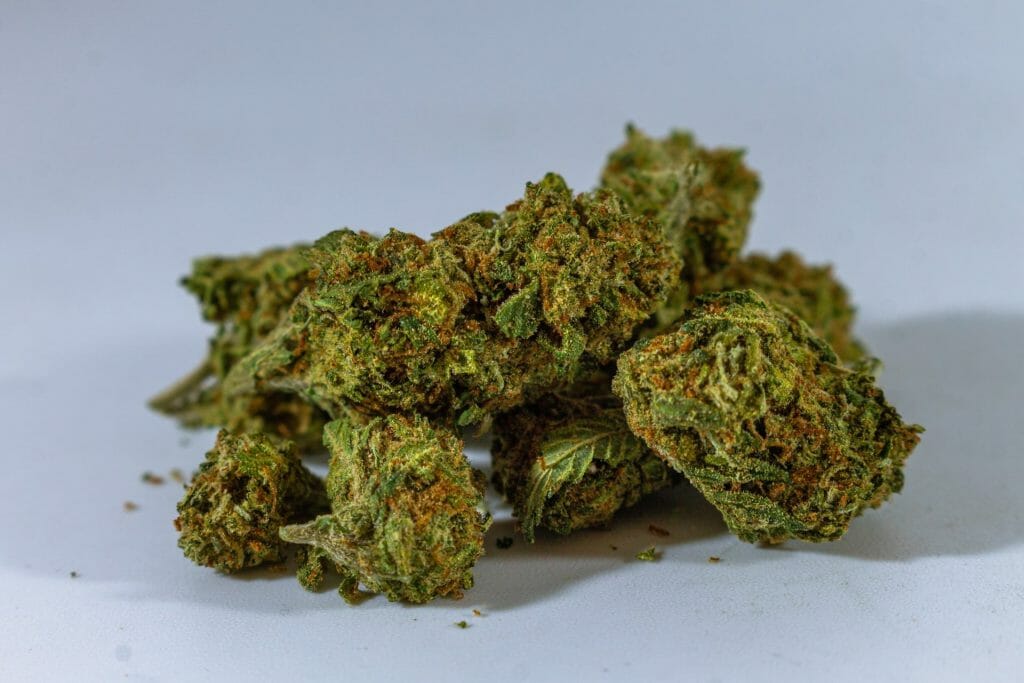The cannabis sector in Canada is rapidly transforming to cater to health-conscious consumers, with many individuals turning to cannabis products for pain relief, muscle recovery, and stress alleviation.
From renowned athletes to wellness advocates, many are discovering that cannabis can serve as an effective tool for enhancing both physical and mental well-being. In this blog post, we will explore how the cannabis industry is reshaping the health and fitness landscape and how marijuana is increasingly recognized as a means to foster overall wellness. Stop what you’re doing and read on to learn more about The High Club Canada and cannabis!
Table of Contents
The Science Behind cannabis and Wellness
How cannabis Works in the Body
Cannabis influences the body’s endocannabinoid system, a complex network of receptors and neurotransmitters that regulates various physiological functions, including mood, appetite, pain perception, and immune responses.
The two primary components of cannabis, Tetrahydrocannabinol (THC) and cannabidiol (CBD), interact with the endocannabinoid system. THC is responsible for the psychoactive effects of cannabis, while CBD is non-psychoactive and has shown potential therapeutic benefits.
When cannabis is consumed, THC and other cannabinoids bind to receptors primarily located in the brain, nervous system, and immune system. This interaction can lead to a range of effects, such as euphoria, altered time perception, increased appetite, and mood fluctuations.
CBD may benefit various conditions, including chronic pain, anxiety, and epilepsy, by interacting with additional receptors in the body that regulate pain and inflammation, rather than directly binding to cannabinoid receptors.
Effects of cannabis Near Me on Wellness and Fitness
While further research on cannabis is necessary, some sources indicate promising outcomes. Here are a few notable examples:
Pain Management
Cannabis has been found to offer potential benefits for pain management in individuals suffering from chronic pain or injuries. Many chronic pain patients who utilized cannabis reported a significant reduction in overall discomfort.
Muscle Recovery
The use of cannabis may aid in muscle recovery post-exercise. Research published in the International Journal of Physical Education, Sports, and Health indicates that athletes who incorporated CBD after their workouts experienced faster recovery times and significantly less muscle soreness after 24, 48, and 96 hours.
Stress Relief
Recent studies suggest that cannabinoids may be beneficial in treating PTSD. One study found that cannabis use could reduce activity in the amygdala, the brain region responsible for fear responses to threats.
Additionally, another study proposed that the cannabinoids in cannabis might help extinguish traumatic memories. These effects present therapeutic potential for those grappling with PTSD.
Cannabis and Physical Wellness
The active ingredients in cannabis, known as cannabinoids, interact with the endocannabinoid system, which plays a crucial role in regulating pain, inflammation, and immune function.
Cannabis can effectively alleviate pain associated with neuropathy, cancer, and multiple sclerosis. THC activates receptors in the brain that are involved in pain regulation, providing relief.
Cannabis and Mental Wellness
The cannabinoids engage with the body’s endocannabinoid system, which regulates mood, anxiety, and stress levels. Research indicates that cannabis can significantly reduce symptoms of anxiety and stress.
THC, the main psychoactive ingredient in cannabis, has been shown to activate specific brain receptors that control anxiety and stress responses, leading to a calming effect. CBD also demonstrates potential anti-anxiety properties.
Many individuals utilize cannabis to unwind after a long day or to improve sleep quality at night. Cannabis can produce sedative effects, beneficial for those facing sleep challenges related to stress or anxiety.
Examples of Meditation Practices that Incorporate cannabis Use
It’s important to recognize that using cannabis before or during meditation can have varying effects and may not be suitable for everyone.
Here are some meditation practices that individuals may integrate cannabis into:
Mindfulness Meditation
Many find that cannabis helps them achieve a more relaxed and focused state, which is advantageous for mindfulness meditation. Some also report enhanced awareness of bodily sensations and emotions, which are central to mindfulness practices.
Guided Meditation
Certain guided meditations are designed to be used with cannabis. These sessions may incorporate music or soundscapes that complement the effects of cannabis, fostering relaxation and focus.
Yoga Nidra
Yoga nidra is a form of guided meditation often utilized for relaxation. Many individuals find that cannabis enhances their yoga nidra experience by promoting a deeper sense of relaxation and presence.
Transcendental Meditation
This technique involves repeating a mantra to quiet the mind and achieve deep relaxation. Some practitioners report that cannabis facilitates entering this state more easily and maintaining focus on their mantra.
Conclusion
Cannabis is swiftly transforming the health and fitness landscape, as more individuals explore its potential health benefits. Numerous cannabis stores online offer access to a variety of products. Their knowledgeable staff can provide insights on all items. Ensure you are 18 years or older before visiting a cannabis store.
While cannabis has historically been linked to recreational use, its efficacy and potential for addressing numerous health conditions are increasingly recognized. From pain relief to anxiety reduction, cannabis holds promise for guiding individuals towards healthier and more active lifestyles.
“`



